Episode 270: Civic Power Roadmap 2025
As Nelson Mandela said, “It always seems impossible until it is done.” Now it is time to get active, get engaged, and participate in shaping your community and our collective future. For our first #SundayCivics class of 2025, L. Joy shares her civic engagement roadmap for 2025. Four points she’s highlighting are personal advocacy, community engagement, legislative advocacy, and electoral engagement.
Personal Advocacy:
The foundation of civic engagement lies in governing yourself. Begin by reflecting on your political values—the principles that guide your opinions and actions. Whether it’s affordable healthcare, equitable education, or environmental protection, align your actions with what matters most to you. Do your political values align with your political party registration? If not, consider the steps needed to align your actions with your values.
Next, think about whether or not` you are receiving reliable, diverse information by conducting a news source audit.
Practice fact-checking regularly, especially before you share information, and challenge yourself to explore multiple perspectives to stay informed.
Emphasize the importance of governing yourself before engaging with your community or representatives.
Community Engagement:
This year, doubling down on community engagement is essential. True civic power stems from working within your community—not as a distant observer or self-appointed savior, but as an active and engaged member. Start with conducting a community needs assessment. No, it doesn’t require a clip board and surveys, but it does require conversations. Talking to your neighbors, engaging with local parents, seniors, youth, and small business owners. What are the common concerns or gaps that people bring up? Whether it’s about schools, public spaces, or local services, knowing your community’s needs is the foundation of impactful advocacy.
Before starting something new, explore what’s already in place. Join organizations that are already addressing your community’s needs. Offer your time, talent, and treasure to strengthen those efforts. Investing in community institutions is important because they often lack resources, and your contribution can make a meaningful difference.
Sometimes, collaboration is key. Build or join coalitions to collaborate with other organizations to tackle shared challenges. These partnerships amplify efforts, share resources, and create broader impact. Whether it’s advocating for a new policy or organizing a community event, coalitions are powerful tools for change.
Your local political club is where grassroots change begins. Join a political club or organization because these organizations shape candidates, influence policies, and build the groundwork for larger elections. Get involved, contribute your voice, and help shape the political landscape in your community. **Remember when engaging where you live, leadership is important, but so is being an engaged member of your community. Follow, listen, and collaborate.**
Legislative Advocacy:
Electing representatives is just the beginning. Legislative advocacy ensures your priorities remain front and center. Start by participating in budget hearings to advocate for your budget priorities. This works to ensure funding aligns with your community’s needs.
Track bills and share your stance with lawmakers. Let them know if you oppose or support legislation. We’ve discussed this here before, but you can write legislation you want to see. Work with legislators and or organizations, etc. to draft legislation that addresses your community’s needs.
Testify in public hearings. Use your voice to influence policy.
Mobilize your community to advocate for shared priorities. Organize a lobby day to speak with legislators.
Electoral Engagement:
Local elections are the purest form of direct democracy and often have the greatest impact on your daily life. School board members, city council representatives, and mayors make decisions that shape your community, yet these municipal elections often see low voter turnout. Let’s turn that around in 2025 and participate in local elections.
Take time to research candidates. Identify and support those who align with your community’s values.
Educate yourself and others on initiatives appearing on the ballot. This knowledge will ensure you are prepared to flip your ballot over to vote on those ballot initiatives.
No one running for office fit your political values? Run for office! You are the change you want to see if you are not seeing it elsewhere.
Take Civic Action
Do-Now: Download the free syllabus that accompanies this episode at sundaycivics.org. Share it AND this episode with friends, family, and your community to empower others to take action..
